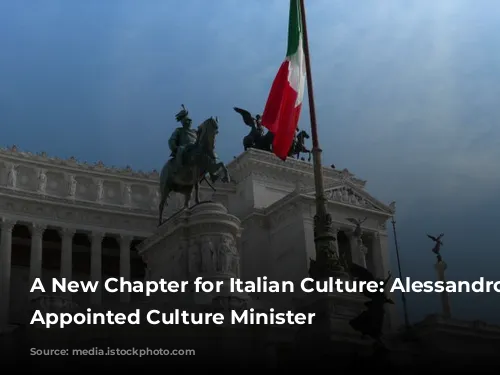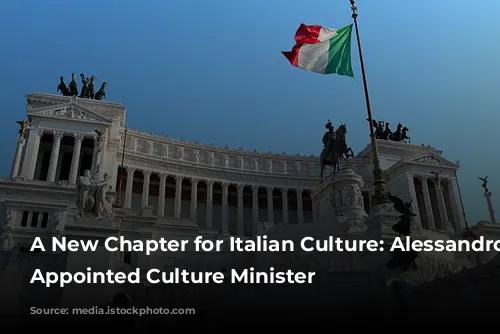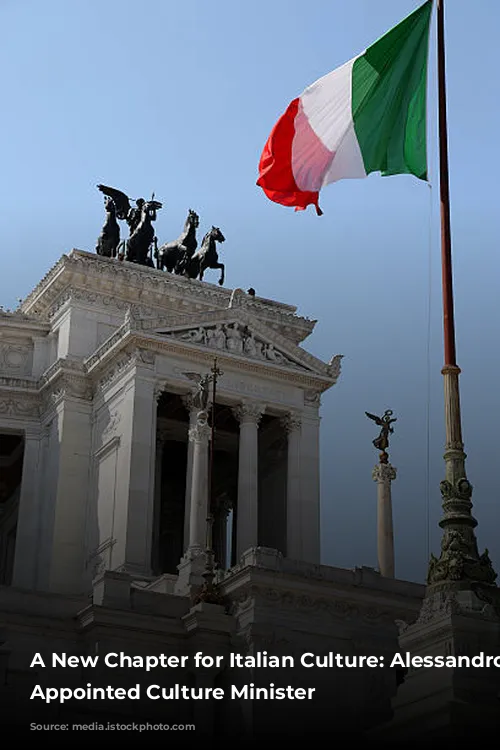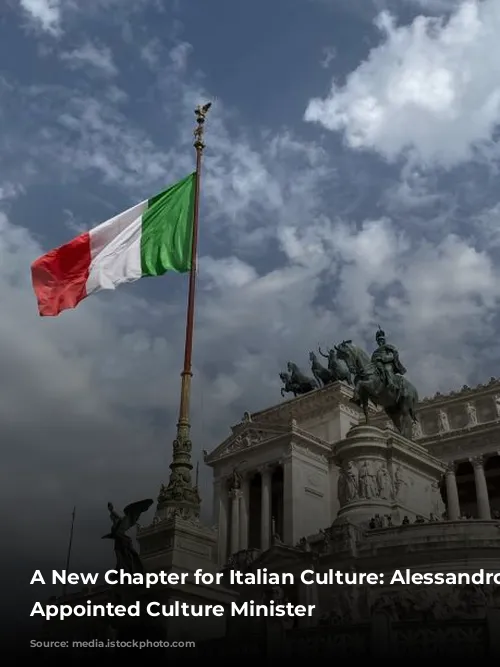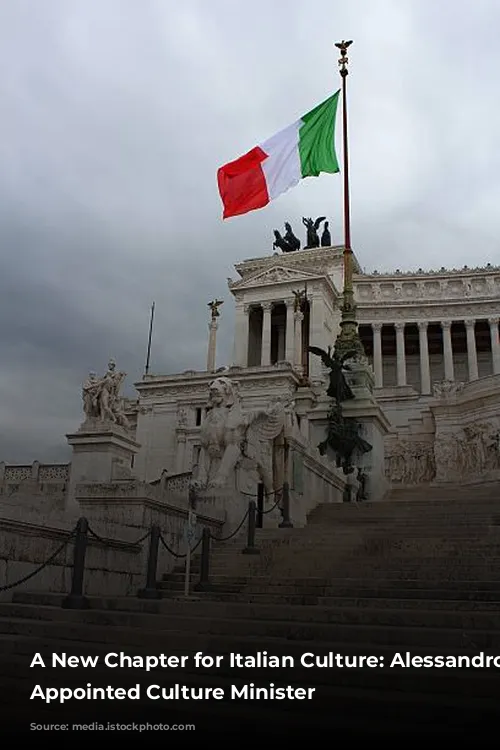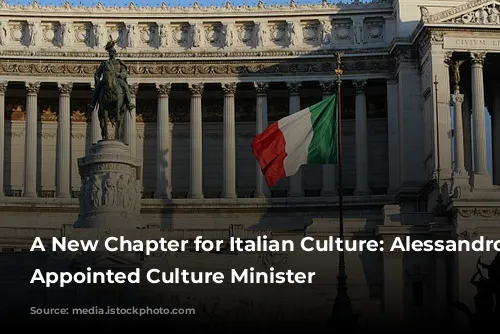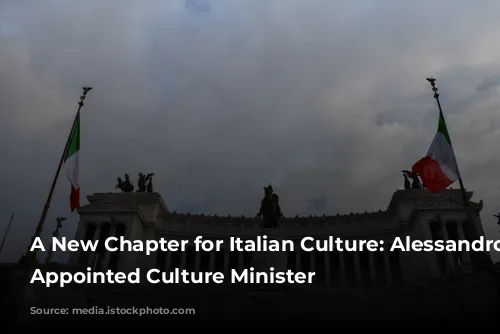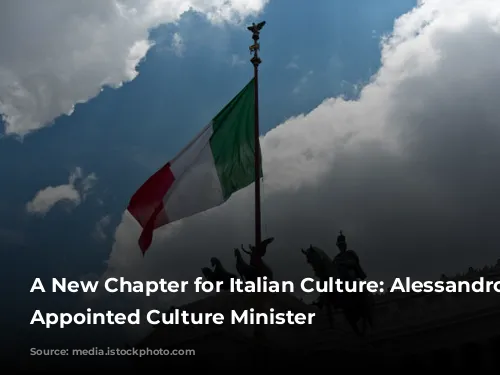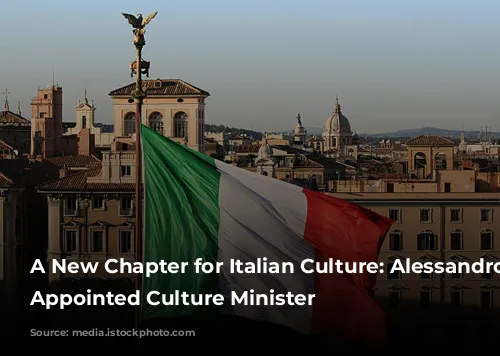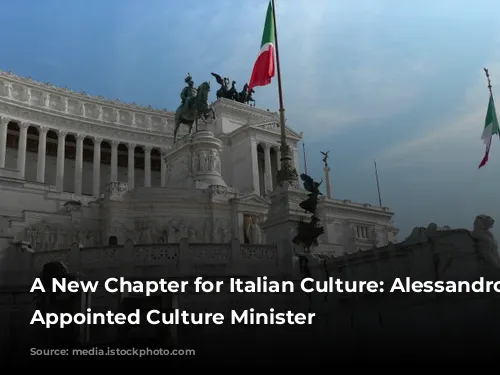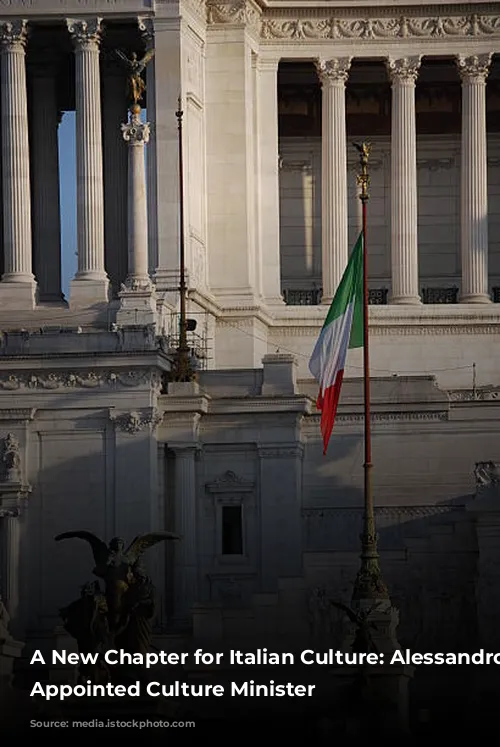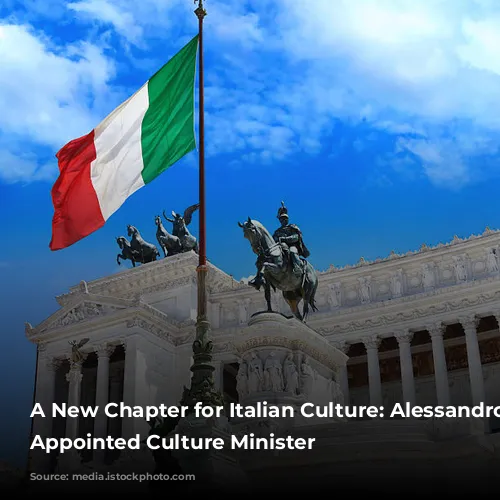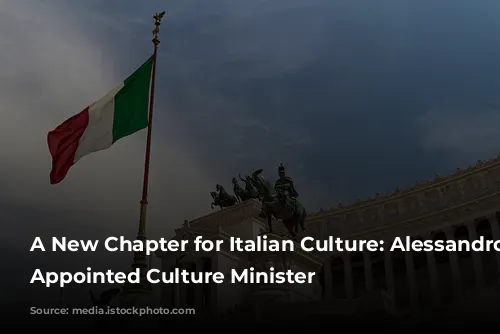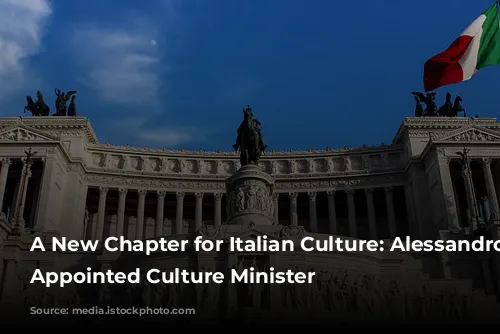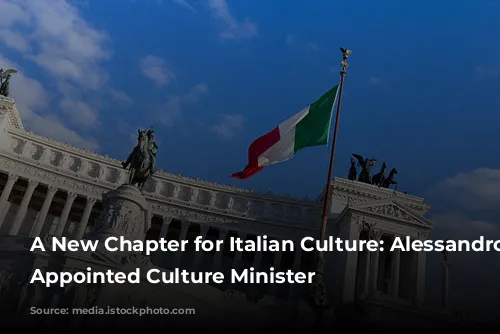Italy’s cultural landscape is undergoing a significant shift, with a new right-wing figure taking the reins. Alessandro Giuli, a prominent journalist and television personality, has been appointed as the country’s new culture minister. This appointment follows the resignation of his predecessor, Gennaro Sangiuliano, who faced a public outcry over an alleged scandal involving his ex-mistress.
Giuli’s appointment has been met with mixed reactions. While Prime Minister Giorgia Meloni sees it as a continuation of her party’s efforts to “revive national culture” and break with the “cultural hegemony” of the left, critics raise concerns about his lack of experience in museum management and his ties to right-wing political groups.
A Controversial Past
Giuli’s journey to the helm of Italy’s cultural institutions has been marked by controversy. His appointment as president of the foundation running the Maxxi national museum for contemporary art in Rome in November 2022 was met with skepticism, given his background as a journalist and television personality for right-wing publications. This appointment coincided with the rise to power of Giorgia Meloni and her Fratelli d’Italia party, known for its far-right ideology.
Giuli’s tenure at the Maxxi was further marred by a public incident in July 2023. While attending a panel with Vittorio Sgarbi, Italy’s then-undersecretary for culture, Giuli was caught on camera failing to intervene as Sgarbi engaged in a sexist and offensive rant. This episode triggered widespread criticism and forced Giuli to issue an apology for not stopping Sgarbi’s remarks.
Giuli’s past involvement with neo-fascist groups further fuels concerns about his potential influence on Italy’s cultural sphere. He was a member of the Meridiano Zero group and joined the Youth Front, a branch of the now-defunct Italian Social Movement, at the age of 14. These affiliations draw parallels with Pietroangelo Buttafuoco, another right-wing journalist and TV personality who also had ties to the Italian Social Movement and was recently appointed president of the Venice Biennale.
A Scandalous Resignation
Meanwhile, Sangiuliano’s departure from the ministry was triggered by a media scandal surrounding his alleged appointment of his ex-mistress, Maria Rosaria Boccia, as an advisor. This revelation sparked public outcry and fueled questions about potential misuse of public funds and access to classified information. Sangiuliano initially denied the allegations but later admitted to hiring Boccia as an unpaid consultant, prompting him to resign.
A Right-Wing Vision for Culture
Meloni’s appointment of Giuli reflects her broader political agenda. She sees the arts as a platform to promote her party’s values, even going so far as to inaugurate a state-sponsored exhibition dedicated to J.R.R. Tolkien, the author of The Lord of the Rings. While some interpret Tolkien’s work as a celebration of conservative values, others point out the author’s rejection of extremism.
The appointment of Giuli and his predecessor, Sangiuliano, signals a shift in Italy’s cultural landscape, with a clear emphasis on promoting right-wing ideologies and values through artistic and cultural institutions. This development has raised concerns about the potential for censorship and manipulation of cultural expression, as well as the influence of far-right ideologies on Italy’s artistic heritage. Only time will tell how Giuli’s tenure as culture minister will unfold and whether he will embrace the role of cultural guardian or succumb to the influence of his political affiliation.
